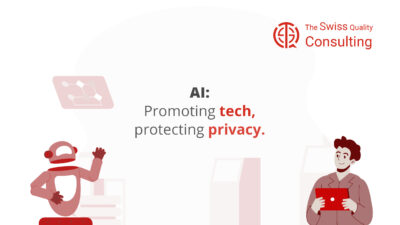Navigating the Future of Education with Technology
Introduction to Immersive Learning Environments
Ethical considerations in immersive learning environments are crucial as modern technology continues to reshape the educational landscape. These innovative platforms, which include virtual reality (VR), augmented reality (AR), and mixed reality (MR), offer unparalleled opportunities for interactive and engaging learning experiences. For business executives, mid-level managers, and entrepreneurs, understanding the ethical implications of these technologies is essential for fostering responsible innovation.
Immersive learning environments leverage advanced technologies to create simulated experiences that mimic real-world scenarios. These environments can enhance learning outcomes by providing students with hands-on practice in a controlled setting. However, the use of these technologies raises important ethical questions related to data privacy and student well-being.
In regions like Saudi Arabia and the UAE, where technological adoption is rapidly accelerating, addressing these ethical considerations is particularly pertinent. As Riyadh and Dubai continue to invest in cutting-edge educational technologies, ensuring that these innovations are implemented responsibly will be key to their long-term success.
Data Privacy in Immersive Learning Environments
One of the primary ethical concerns in immersive learning environments is data privacy. These platforms often collect extensive data on student interactions, behaviors, and performance. While this data can be invaluable for personalizing learning experiences and improving educational outcomes, it also poses significant risks if not managed properly.
Protecting student data requires robust security measures and transparent data governance policies. Educational institutions must implement stringent protocols to ensure that data is collected, stored, and used in compliance with privacy regulations. This includes obtaining informed consent from students and their guardians, anonymizing data to protect individual identities, and regularly auditing data practices to identify and mitigate potential risks.
Moreover, as immersive learning technologies are increasingly adopted in Saudi Arabia and the UAE, aligning with global data privacy standards will be essential. By adhering to best practices and international regulations, educational institutions in Riyadh and Dubai can build trust with students and stakeholders, fostering a culture of transparency and accountability.
Student Well-being in Immersive Learning Environments
Another critical ethical consideration is student well-being. Immersive learning environments can be highly engaging, but they also have the potential to cause physical and psychological strain. Prolonged use of VR and AR headsets, for example, can lead to issues such as eye strain, motion sickness, and cognitive overload.
To safeguard student well-being, it is important to establish guidelines for the safe and responsible use of immersive technologies. This includes setting time limits for sessions, incorporating regular breaks, and providing training on the proper use of equipment. Additionally, educators should be vigilant in monitoring students for signs of discomfort or distress and take immediate action if any issues arise.
Furthermore, the content and design of immersive learning environments must prioritize inclusivity and accessibility. This means creating experiences that are suitable for students of all abilities and backgrounds, and ensuring that the technology is used to support, rather than replace, traditional teaching methods. By focusing on student well-being, educational institutions can create a supportive and enriching learning environment that maximizes the benefits of immersive technologies.
Balancing Innovation with Ethical Responsibility
Balancing innovation with ethical responsibility is a complex but essential task. As immersive learning technologies continue to evolve, it is important to remain vigilant about the ethical implications of their use. This requires a proactive approach, involving continuous assessment and adaptation of policies and practices to address emerging ethical challenges.
One effective strategy is to establish ethical review boards within educational institutions. These boards can provide oversight and guidance on the development and implementation of immersive learning technologies, ensuring that ethical considerations are integrated into every stage of the process. By involving a diverse group of stakeholders, including educators, students, parents, and technology experts, these boards can offer a comprehensive perspective on the ethical use of technology.
Additionally, fostering a culture of ethical awareness and responsibility among educators and students is crucial. This can be achieved through regular training and education on ethical issues, as well as promoting open dialogue and discussion about the potential impacts of technology. By encouraging critical thinking and ethical decision-making, educational institutions can empower their communities to navigate the complexities of immersive learning responsibly.
The Role of Leadership in Ethical Innovation
Leadership plays a pivotal role in driving ethical innovation in immersive learning environments. Business executives and mid-level managers must champion the ethical use of technology and set a positive example for their teams. This involves not only adhering to ethical standards but also actively promoting and investing in initiatives that prioritize ethical considerations.
In Riyadh, Dubai, and other rapidly developing regions, leaders have the opportunity to shape the future of education by fostering a culture of ethical innovation. This can be achieved by supporting research and development in ethical technologies, collaborating with international organizations to align with global best practices, and advocating for policies that protect data privacy and student well-being.
Furthermore, leaders should encourage interdisciplinary collaboration to address the multifaceted ethical challenges of immersive learning. By bringing together experts from fields such as education, technology, psychology, and ethics, organizations can develop comprehensive and nuanced approaches to the ethical use of immersive technologies. This collaborative approach can drive meaningful progress and ensure that the benefits of immersive learning are realized in a responsible and sustainable manner.
Conclusion: Embracing Ethical Immersive Learning
In conclusion, the ethical considerations in immersive learning environments, particularly regarding data privacy and student well-being, are critical for the responsible integration of modern technology in education. By prioritizing these ethical issues, educational institutions in Saudi Arabia, the UAE, Riyadh, Dubai, and beyond can harness the full potential of immersive learning technologies while safeguarding the rights and well-being of their students.
As the landscape of education continues to evolve, it is imperative to strike a balance between innovation and ethical responsibility. By adopting best practices, fostering a culture of ethical awareness, and providing strong leadership, we can create immersive learning environments that are both transformative and ethical. This approach will not only enhance learning outcomes but also build trust and confidence in the use of technology in education, paving the way for a brighter and more equitable future.
#EthicalConsiderations #ImmersiveLearning #DataPrivacy #StudentWellbeing #ModernTechnology #BusinessSuccess #LeadershipSkills #ManagementSkills #ProjectManagement #SaudiArabia #UAE #Riyadh #Dubai #ArtificialIntelligence #Blockchain #TheMetaverse #GenerativeAI























